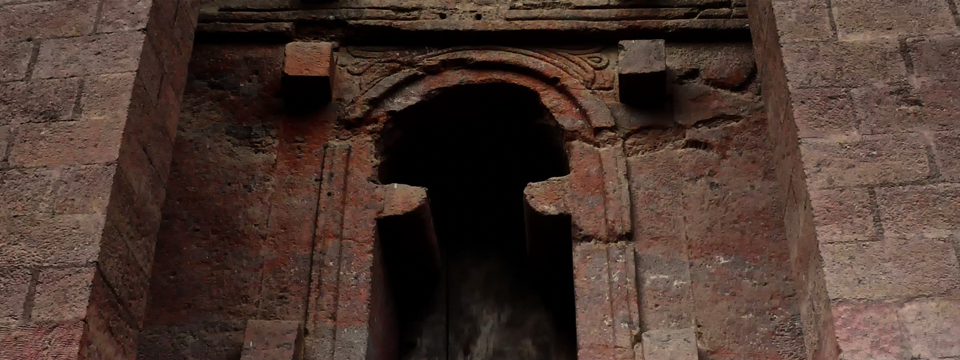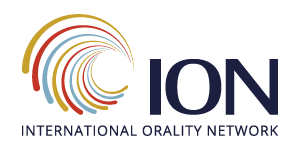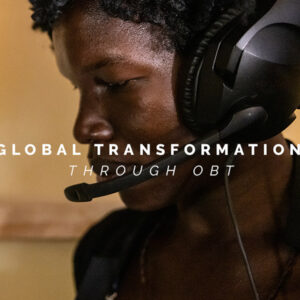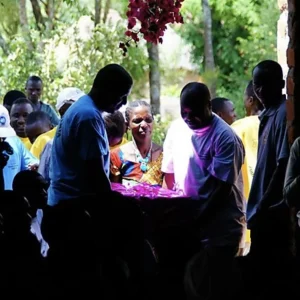My name is Priest Hadessa.* I am the head priest of an Orthodox church in a country where Christianity arrived in the 1st century AD. I have five children of my own, and I am a father confessor—a “God father”—to the families in my church, who are my spiritual children.
Ancient Structure

Throughout the centuries, every family in my province has had a priest to whom they confess their sins. The people choose their confessor father from among the priests in the church they regularly attend. A priest’s spiritual children are willing to walk long distances to attend services, which we have almost daily.
We priests also conduct the required Orthodox ceremonies for marriages, baptisms, and funerals, chanting in our ancient liturgical language. My priestly role includes visiting my spiritual children when there is a death or an illness and helping to reconcile family disputes. During the early days of Christianity’s arrival here, this structure was created so everyone could have a caring mentor.
Blind Leading the Blind
Over the past 1,400 years, my country has endured many invasions from our Middle Eastern neighbors, who have tried to convert us to their majority religion. But my people have fought hard to protect our Christianity. Although the people of this land are religiously zealous, they have been inadequately taught the Word of God. I learned this when I attended a Bible training last year and received the new Bible translation in our mother tongue.
Before receiving a copy of the Bible in our dialect, like most of the priests in my country, I had only the Book of Psalms. It is written in an old language of which we priests have little understanding. Even when we tried to translate passages into our mother tongue, the message wasn’t clear to the people.
Our people deeply respect their priests; they allow only us to teach them. But without a Bible in our dialect, we were not teaching them; we were just performing ceremonies. It was like the blind leading the blind.
Humbled
I received an invitation to the Bible training that the Orthodox Bible seminary graduates arranged in our state last year. One priest from each of the 71 churches in my district was invited to attend.
Since the Bible graduates providing the training are deacons, the lowest rank in our church hierarchy, I admit that I had mixed feelings about whether to attend. I said to myself, What do they know more than I know? I finally opted to attend the first day to spy out the situation with the intention to drop out of the training.
But after two hours of instruction, I was ashamed of myself for my irresponsibility as a priest and the little I knew about God. During the question and answer session, I raised my hand to confess my pride and ignorance. Other priests also spoke of having similar arrogance. We asked our trainers to give us the maximum amount of teaching possible so we could be equipped to better serve our people.
The Sweet Word
During the Bible training, I learned the depth of God’s love manifested in the ultimate sacrifice of our Lord Jesus Christ on the cross. I also realized that I was a nominal priest who wasn’t feeding the Word of God to myself, my family, or my confession children. It was an eye-opener for me to learn that God will hold me accountable for their spiritual care.
Since receiving a Bible during the training, I have been reading it for hours—every day. I can’t part from the sweet Word. I now understand my role as a priest. I know that I have a big responsibility for which I have to give an account to God.
Now that I have the Bible in my language, I am determined to teach the way of salvation to my people. Even before completing the training, I went to a secular government school and asked the director to allow me to speak to the primary- and middle-school students. Because priests are respected, he gave me the opportunity.
I apologized to the students on behalf of the church for not teaching them the Word of God. I promised them I would start a Sunday school program the next weekend, which was well attended. I am continuing to teach, and it is impacting the youth; many of them are asking to have a Bible of their own.
God Is Speaking
After I completed the Bible training course, I also received a dramatized version of the New Testament that is recorded on an audio device. I have since been visiting my confession children. In each home I play the recording for them. They love it since it is in their mother tongue, and they always remind me to come back with the audiotape.
The Word of God is changing their lives. They now say, “God is speaking to us in our language! He has heard our pleas and has seen our problems. He is revealing Himself to us!”
Now I feel that I am fulfilling my priestly responsibilities, and I am confident that other priests who are equipped like me are reaching out as I am. I want to express my gratitude to those who labored in the translation and who provided the money for it. God bless them!









